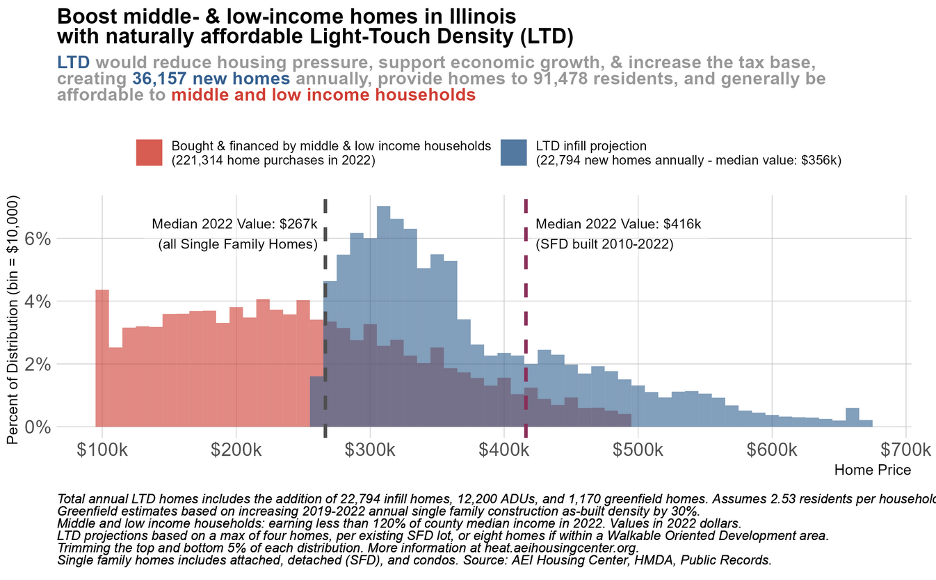Welcome to the Hale Report! I’m Lyric Hughes Hale, Editor-in-Chief of EconVue and your host for this podcast. Based in Chicago, EconVue is a home for independent voices and expert analysis of critical global economic issues.
My guest for the 51st episode of the Hale Report is Edward J Pinto, Senior Fellow at the American Enterprise Institute in Washington. He serves as Co-director at the AEI Housing Center which is a treasure trove of data and analysis in this sector.
I first met Ed Pinto in Maine, at the Camp Kotok retreat for economists. Ever since then, he has been my go-to guy for anything related to housing, a subject that interests almost everybody—not just economists.
No Room at the Inn
I learned so much from speaking with Ed last week. He recounted one bit of housing history that really stuck in my mind. When we were talking about the causes of homelessness, in addition to the immigration surge, drugs, lack of mental health facilities, and the 2008 housing crash, he mentioned one cause I had never thought of—the demise of boarding houses. An excerpt from our conversation:
So homelessness actually goes back to the zoning issue. Rooming houses were made illegal. Single room occupancy (SRO) was made illegal. Los Angeles, San Francisco, New York, Chicago had hundreds and hundreds of thousands of SROs. And when you were migrating up from wherever to start a better life, you started with a room at $1 a night, or whatever it was. They had hot meals. You’d get a job. You’d eventually save a little bit of money. You’d move into an apartment and off you went. That was the way it worked. They were all made illegal and those were places where people who would otherwise become homeless could actually land.
I imagine my Greek grandfather, arriving in Chicago as a teenager, found his way to one of these establishments and that the same was true for many who came to the big city to forge a new life. (Actually I just confirmed with my mother that this was indeed the case.) It was a warm place to stay for those starting out, or down on their luck. Although I can almost imagine the neon sign flashing outside the window, it was also a way for widows in residential neighborhoods to bring in income. A kinder, gentler time. We probably cannot replicate those circumstances, but we can improve zoning policies to allow for more than single family housing.
Light-Touch Density Housing as a possible solution
Let’s look at the possible impact of LTD in Illinois in this histogram:
Some of the questions I asked Mr Pinto are below. For the answers, please listen to the podcast—your comments and questions are welcome!
I think your background and experience make you the ideal person to answer this question. Can you explain the tapestry of government bodies involved in housing?
You have done groundbreaking research on the role of government housing policies in the lead-up to the Global Financial Crisis. Often blamed on banks and speculators, your data reveal the role of housing policy on the mortgage crisis. Ed, can you share your thoughts on what happened in 2008?
Today we have both shortage and affordability issues. You write that the housing shortage today is not a market failure, but a government regulatory failure.
We saw the high costs of shelter in last Friday’s CPI numbers. What is causing the affordability crisis in housing? Which factor do you attach the most weight to?
So there is not enough housing…what else causes homelessness? China has too much supply. We have the reverse problems! Since the 1980’s what does the data show?
Zoning and permits? Is there a study that describes the cost of government overhang in the housing market?
Mortgages-variable rate elsewhere, fixed here-payments deductible-tax policy. They hit a recent high this week, 6.77% --will this continue?
Prevalence of GSE Appraisal Waivers, and cash buyers %
Commercial real estate-what is the intersection of lack of demand here, and over-demand in housing? We talked about conversion issues previously.
Pending Legislation
Congress will soon consider two bipartisan bills with the stated purpose to address high rental costs. Combined, the Low Income Housing Tax Credit and the Workforce/Middle-Income Housing Tax Credit programs would expand eligibility of subsidized rental units to about three-quarters of the nation’s renters.
This massive expansion would waste taxpayer money, crowd out more private builders, and deter many families from advancing economically. And it would do precious little to address the nation’s housing-supply problem.
What are the solutions?
Selling off underutilized Federal land?
What is by right zoning?
Where are the local success stories? Moderately higher density
What are the key regional trends?
Home Insurance by state – California and Florida- how it affects affordability
How does immigration impact housing?
Forecast: housing prices, interest rates and mortgage rates in 2024 —how do they interact in the marketplace? You say that things will certainly get worse before they get better in your Housing Finance and Inflation Watch nowcast.
Summary: housing unaffordability is a self-inflicted wound, and government policy has created a supply shortage, but state and local governments can do a lot to remedy this and allow private industry to meet demand.
Many thanks to Ed Pinto for joining me, and to all the people behind the scenes who make EconVue possible, especially our producer, Sam Fu.
Finally, for paid subscribers only, we have an upcoming call China Off the Record on February 29th at 4 pm CST. If you’d like to receive an invitation, please respond to this email.














